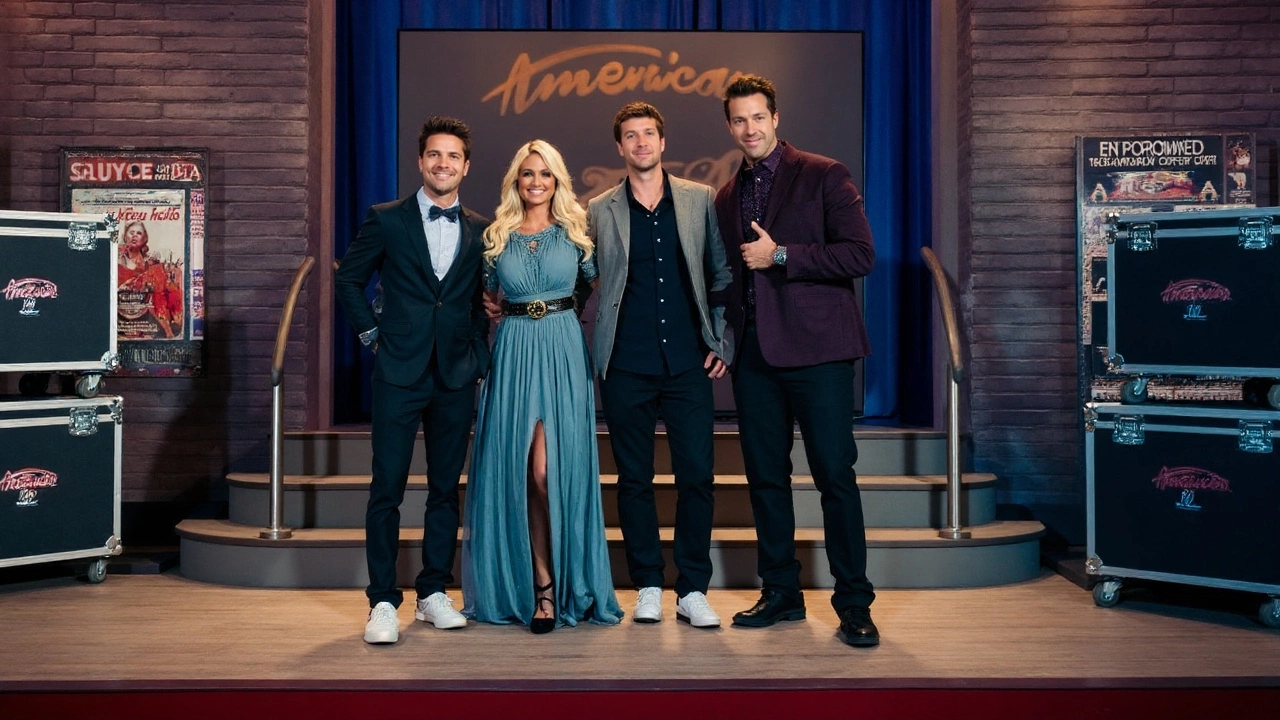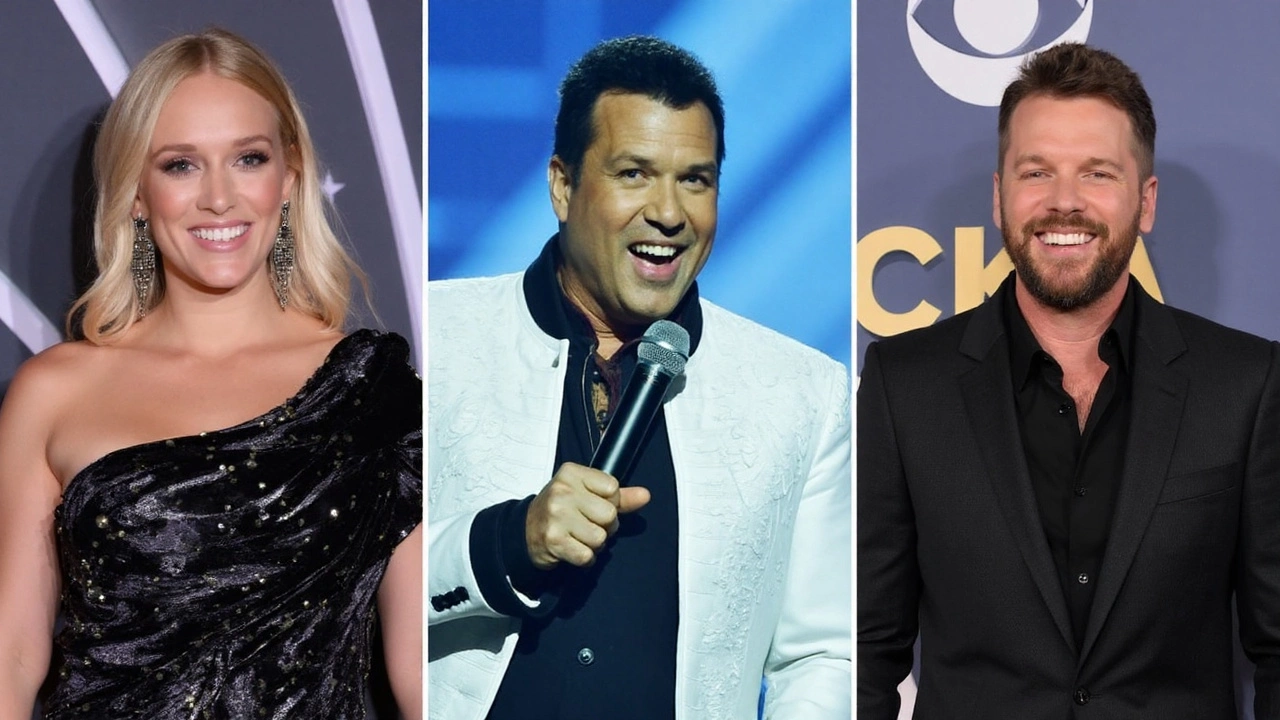A growing friendship, and a chill in the room
Behind the bright stage lights of American Idol, the judges’ table sounds a little quieter for Lionel Richie. The 76-year-old hitmaker is reportedly stung by how tight Luke Bryan and Carrie Underwood have become this season, with their off-camera bond spilling into casual talk on set. It’s not a blow-up. It’s not drama on live TV. It’s a slow shift in comfort and chemistry—one that insiders say has left Richie feeling like “chopped liver.”
What changed? Underwood’s arrival reshaped the balance. She and Bryan share a deep country background and a lifestyle that overlaps in easy ways—family schedules, outdoor hobbies, and the rhythms of touring. Sources say Bryan chats freely about time he’s spent with Underwood’s family, which only highlights Richie’s sense that he’s no longer the closest confidant in the room.
Bryan himself hasn’t hidden the friendship. He’s talked about visiting Underwood’s farm and hanging out with her husband, former NHL player Mike Fisher. Hunting, fishing, golf—that’s their wheelhouse. “Me and Mike, we actually get to fish and golf and do some hunting together,” Bryan said, adding that he’s loved getting to know Underwood “as a wife and a mother” and praising her as a pro both “in music and in life.”
For Richie, the shift stings because of history. He and Bryan had settled into a comfortable on-set rhythm over the years—joking through long audition days and effortlessly sharing the judge’s workload. That chemistry helped carry the show’s modern era. Now, with Bryan leaning toward Underwood off-camera, Richie sees a new axis forming without him at the center.
None of that means the show is messy. On air, the trio keeps it clean and professional. The 2025 finale even featured a well-received performance of Richie’s “Stuck On You,” a quiet sign that the music still comes first. But backstage, according to people familiar with the production, Richie hears the chatter about Underwood’s home life and country world and feels the distance.

Why this matters for Idol—and what’s behind the shift
Judge chemistry isn’t fluff on a show like this—it’s part of the product. Idol works best when the panel feels balanced: one judge pushes, another comforts, a third reframes the critique in a way a young singer can absorb. When judges are tightly bonded, their shared shorthand can make notes sharper and funnier. When someone feels on the outside, you risk uneven feedback and a different energy in the room.
Underwood’s presence brings a lot to that chemistry. She’s an Idol legacy, a season 4 champion who understands the grind from audition to arena tour. Her advice lands with weight because she’s lived it. Pair that with Bryan’s everyman ease and country credibility, and you’ve got a natural tandem—two megastars comfortable around the same bonfires, who also happen to know how to read a Nashville contract.
Richie’s lane is different, but just as valuable. He’s a bridge between pop, R&B, and classic songcraft, and he’s a mentor by instinct. He slows the room down, makes a singer breathe, and asks for a verse that feels honest. That contrast worked wonders when he and Bryan were trading laughs between serious notes. But when the off-camera bond shifts, even a subtle one, the on-set flow can feel slightly off-kilter.
People close to the show describe Richie’s frustration in simple terms: he’s not feuding; he’s sidelined. The “chopped liver” line, as one insider put it, isn’t about scandal—it’s about belonging. It’s the feeling you get when the inside jokes aren’t yours anymore.
Timing matters here too. Underwood arrived as the newest judge, and producers wanted her voice front and center. Two country superstars on a single panel also made strategic sense. Country is a ratings engine, and both she and Bryan draw cross-generational viewers. That practical move also made the personal connection almost inevitable—shared genre, shared networks, and a family-first lifestyle that lines up.
We’ve seen versions of this on other competition shows. When two panelists share a world—comedy, Broadway, hip-hop—they naturally sync. It’s not against anyone; it’s simply how people cluster at work. The challenge is keeping the third voice equally loud, especially when that third voice is a legend whose strengths sit in a different musical lane.
Bryan’s candid words about Underwood’s family life helped put this dynamic on the record. “We’re not having cookouts or anything,” he joked, while still making clear he’s spent meaningful time with her husband. That kind of easy banter can be harmless in public and noticeable on set. When it stacks up across a season, it reads as momentum.
For Richie, this is also about identity. He’s a proud bandleader type—raised on harmony, session players, and craft. He wants a panel where the baton passes cleanly. If Bryan and Underwood click into a two-step, it’s natural that Richie would want to feel the handoff back to him. That’s not ego; it’s professionalism.
To the audience, most of this is invisible. Episodes are cut for pacing, and what you see is the polished version. The jokes land. The critiques feel measured. But crews notice patterns—who huddles on commercial breaks, who trades notes, who waits alone by the monitor. The whispers about Richie feeling left out began there, not online.
Producers have tools to manage this. They script group moments, pair judges in rotating segments, and push for shared mentoring sessions. They also load in collaborative performances—the 2025 finale number being a textbook example—to reset the story and remind viewers this is a team.
The bigger picture is that Idol is heading into another cycle with a panel that works. No one is threatening to bolt. No one’s throwing shade on press day. The friction, such as it is, revolves around something simple: two judges with a lot in common became close, and a third—who used to be closest—felt the gap.
There’s also the question of influence. Young artists read body language. When two judges react in sync, contestants tend to tailor their choices toward that energy. Richie’s value is often in the zag—pulling a balladeer back from oversinging, coaxing a country act into a different melody choice. Keeping that counterweight prominent is part of what keeps Idol from turning into genre karaoke.
Underwood, for her part, hasn’t made a public show of any of this. She’s focused on notes, tone, and readiness for the road. That’s her brand: meticulous, grounded, family-first. Bryan’s brand is more spontaneous and outdoorsy, which fits his stories about hunting and golf with Mike Fisher. Together, they give Idol a warm, approachable glow.
Richie brings the gravitas. He’s the mentor who tells a kid to slow down and say the lyric like they mean it. He’s the one who can close the finale with a timeless hit and make the arena feel like a living room. If he’s feeling left out, you fix that—not just for him, but for the show’s emotional range.
What would a reset look like? Nothing dramatic. More trio segments, fewer paired bits. A few behind-the-scenes features where Richie leads the workshop and Bryan and Underwood play support. Maybe a themed week built around classic storytelling, with Richie’s ear guiding the arrangements while the country duo backs the staging.
Sources around production don’t expect this to derail anything. It’s a nudge, not a crisis. The friendship between Bryan and Underwood is a plus—viewers like to see judges who genuinely enjoy each other. The trick is making sure the third chair stays just as warm.
Fans will likely keep an eye on the small stuff next season: who tosses to whom after a performance, whose feedback lands last, and who gets the final word during tense critiques. Those cues say a lot about a panel’s balance.
For now, the message from inside the show is steady. The panel remains intact. The work continues. The singers keep coming, and the camera keeps rolling. If there’s a bruise, it’s the kind that heals with time and a few shared laughs between breaks.
And if the finale performance was any hint, all three judges still know how to meet in the middle when the music starts. That’s the part viewers remember. The rest is the kind of backstage static that comes with long hours, big personalities, and friendships that form in public under very bright lights.
In short, this is a human story set on a giant stage. Two people clicked. Another felt the gap. The fix isn’t complicated: make space, share the mic, and let the songs do most of the talking.
- The reported friction centers on Bryan’s off-camera closeness with Underwood, including time with her family.
- Insiders say Richie felt sidelined after years of easy rapport with Bryan.
- On-air, the panel remains professional, highlighted by a polished finale performance of “Stuck On You.”
- Producers are expected to keep the chemistry balanced with more group-focused segments next cycle.
That’s the read from people near the set. The judges’ table may be a little different these days, but the show hasn’t lost its center. If anything, this nudge could lead to a panel that uses each judge’s strengths more deliberately—country camaraderie intact, and Richie’s classic storytelling right where it belongs: up front.
